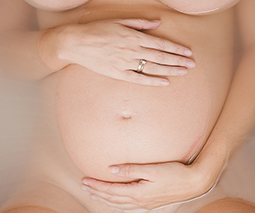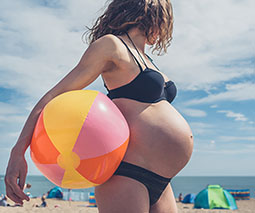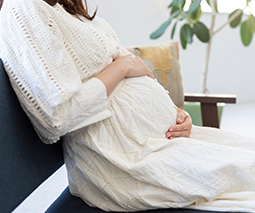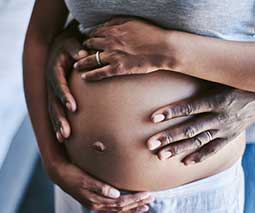CMV in pregnancy: The hidden danger for newborns you’ve never heard about

Expectant mums become pretty well aware of all the things they must be extra vigilant about during their pregnancy for the benefit of their health and that of their unborn baby.
We know there are foods we should avoid, smoking and alcohol need to take a back seat, heavy lifting is out and there is a time limit on plane travel.
But how many of us are told about our chances of catching the human cytomegalovirus (CMV), a common virus that is thought to be the leading cause of disability in newborns?
No warnings given
I am 32 weeks along in my third pregnancy. Yet the first time I was made aware of my risk of contracting CMV was while reading a news story featuring Sydney mum Kate Daly, whose six-year-old twins now live with the effects of the virus.
And it wasn’t until after her twins, William and Emmaline were born that Kate first heard their diagnosis of CMV after her son failed his routine hearing scan at just three weeks.
She then came to learn that the virus, which has left her son profoundly deaf, developmentally delayed and with mild cerebral palsy and her daughter with a learning disability, could have been prevented by taking simple hygiene precautions, The Sydney Morning Herald reported.
“I was so angry, so frustrated. I still am. I felt disillusioned,” Kate says.
“I didn’t understand why no one had ever mentioned CMV, or told us there were things I could do to protect my children from this thing.”
Professor Sharon Lewins, Director of University of Melbourne’s Doherty Institute for Infection and Immunity told the ABC that CMV screening is not routinely done for pregnant women.
“In Australia about six babies per 1,000 are born with CMV disease and of those, one to two may have disabilities,” she says.
“Of course we don’t want that to happen, we want to minimise any possibility of that, but when you work out screening tests, there’s a whole lot of different factors go into whether it’s an effective tool or not.”
How do you catch CMV?
CMV is spread by bodily fluids such as the saliva, urine and stools of young children, the Virology Research Laboratory at the University of New South Wales explains. While about half the population will be infected with CMV by the time they are adults, it usually lays dormant and without symptoms, the ABC reports.
It poses no real threat to pregnant women but, if they catch it for the first time during pregnancy, it can cause lasting problems for their unborn babies. Young children are particularly vulnerable to catching CMV and passing it on to mum through nappy changes, sharing food utensils and kisses on the lips.
Caring for her four-year-old and two-year-old during her pregnancy with the twins meant Kate was at a higher risk of contracting the virus.
“My four-year-old was very affectionate. She’d give me a kiss smack bang on the lips. If I’d known I’d be more careful,” she said.
Prevention is key
There is currently no treatment for CMV during pregnancy, but Sydney Children’s Hospital paediatric infectious diseases doctor Brendan McMullen says it is easy to prevent.
“CMV is transmitted mainly via contact with infected secretion,” Dr McMullen tells the ABC. “So for pregnant women the most important thing, particularly for those who have young children or are around young children, the most important thing they can do is actual simple hand-washing.”
Feature image via Facebook









